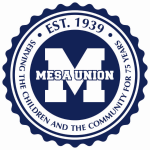The Board of Education is the policy-making body for the District. To effectively meet the District’s challenges, the Board and Superintendent must function together as a governance team. To ensure unity among team members, effective operating procedures, or protocols, must be in place. There are general protocols and those that are specific for the Board and the Superintendent.
General-The Board and Superintendent will:
1. Keep learning and achievement for all students as the primary focus.
2. Value, support, and advocate for quality public education.
3. Operate openly with trust, integrity, and transparency.
4. Govern in a dignified and professional manner, treating everyone with civility, dignity, and respect, while honoring the right to disagree with each other.
5. Define and respect the difference between administration and policy-making and respect the roles of each other.
6. Keep confidential matters confidential. Uphold the legal requirement for confidentiality on all mattes arising from Board Meeting Executive Sessions; keep all conversations taking place in Closed Session absolutely confidential.
7. Keep communication open and courteous; agree that email and text messages should not be used to address personnel matters nor resolve governance team issues.
Board Members will:
1. Work with all members of the Board and the Superintendent to become a team devoted to students; be dedicated to making all members of the team successful.
2. Act with dignity, and understand the implication of demeanor and behavior.
3. Recognize and respect difference of perspective and style on the Board and among staff, students, parents and the community.
4. Focus on policy making, planning, and evaluation of student success.
5. Develop and communicate a common vision.
6. Understand the distinctions between Board and staff roles, and refrain from performing management functions that are responsibility of the Superintendent and staff.
7. Support decisions of the majority after honoring the right of individual members to express opposing viewpoints and vote their convictions.
8. Acknowledge individual request, questions, reports, and projects will be directed only to the Superintendent.
9. Participate in establishing annual expectations and goals for the Superintendent in a timely manner.
10. Objectively evaluate the Superintendent's performance and provide appropriate feedback.
11. Periodically evaluate its own effectiveness; review its protocols.
12. Take collective responsibility for the Board's performance.
13. Communicate directly with the Superintendent whenever a question or concern is raised by a staff member, student, parent, or community member.
14. Contact the Superintendent whenever contacted by the media regarding an incident, event, or agenda item.
15. Communicate directly with the Superintendent prior to Board meetings to address questions and/or concerns about agenda items; honor the "no surprises" rule with the Superintendent and fellow Board members.
16. Communicate one-on-one with the Superintendent when an individual concern arises; do not allow a matter to fester.
17. Cast a vote on all matters except when a conflict of interest arises-if that is the case recuse self from discussion.
18. Listen to and recognize individual constituents and special interest groups, while understanding the importance of using one's best judgment to represent all members of the community.
19. Visit school sites and attend school functions, as time permits, but avoid interrupting employees at work.
20. Represent the District, when possible, by attending community functions.
21. Participate in professional development and commit the time and energy necessary to be an informed and effective leader.
The Superintendent will:
1. Understand the distinction among Board, Superintendent and staff roles, and respect the role of the Board as the representative of the community and as the maker of policy.
2. Work with the Board to develop and maintain an environment of mutual respect, open communication, and team work dedicated to the Mesa Union School Community with a clear focus on students.
3. Work with the Board to establish and communicate a clear vision for the school district.
4. Prepare preliminary goals annually for the Board's consideration.
5. Accept leadership responsibility and be accountable for implementing the vision, goals, and policies of the District.
6. Provide data to the Board members so data-driven decisions can be made.
7. Make personnel recommendations and changes in consultation with the Board
8. Communicate with Board members promptly and effectively.
9. Inform the Board prior to critical information becoming public; apprise all Board members in a timely manner of any major incident or when they may be called on to answer or explain.
10. Distribute the Board agenda in a timely fashion and with enough time for Board study and clarify information prior to scheduled meetings.
11. Provide requests for additional information equally to all Board members through a Board Update, special report, Board agenda items, or as a Board workshop.
12. Communicate with individual Board members to determine if concerns exist prior to a possible problem developing, and respect the right to disagree with each other.
13. Represent the school district by being visible in the community.
14. Model the value of life-long learning.
